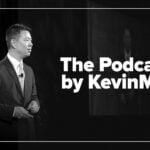In an age where medicine is increasingly shaped by administrators, algorithms, and corporate cost-cutting, physicians find themselves stripped of many of the economic tools that once defined their professional autonomy.
The days when physicians—especially in fields like internal medicine, pediatrics, and even general surgery—could rely on billing, collections, and the straightforward logic of fee-for-service income are largely over. Reimbursement has stagnated or declined in real terms, overhead costs rise yearly, and payer complexity erodes both efficiency and revenue. While procedural specialties like orthopedics, ENT, and plastics may still enjoy geographic pockets of billing-based sustainability, even these are becoming increasingly dependent on the forces of market consolidation and regional demand.
Into this environment walks a new generation of physicians—bright, idealistic, and deeply burdened. They are hundreds of thousands of dollars in debt, starting their careers a decade later than most of their non-medical peers, often delaying family life or financial stability. Lacking formal education in business, economics, or the intricacies of health care finance, many young doctors understandably seek the predictability of salaried employment. Yet that very predictability may be a mirage. Salaried positions are not protected from market dynamics; they are defined by them. And when supply rises, salaries will inevitably fall.
Compounding this is the day-to-day reality of practicing medicine under layers of bureaucratic nonsense, none more frustrating or demoralizing than the stupidity of EMR requirements.
What began as a tool to streamline care and improve communication has become a bloated, mind-numbing labyrinth of checkboxes, meaningless metrics, and click-driven compliance exercises. The physician’s time is now less about thinking and healing, and more about satisfying insurance-driven documentation rules and hospital quality gimmicks—none of which improve outcomes, but all of which erode job satisfaction. EMRs have become less about patient care and more about institutional CYA and billing optimization.
This is why the current physician shortage—while publicly lamented and politically framed as a national crisis—is, in truth, the only meaningful leverage physicians have left.
It is the last buffer against widespread economic commoditization of our labor. As long as physicians remain scarce, institutions must compete to recruit and retain them. Salaries stay strong. Work-life balance is negotiated. Autonomy—limited though it may be—still carries some currency.
But increase the supply significantly, and this leverage vanishes. Whether in private practice or academic medicine, the law of supply and demand will assert itself. Flood the market with young physicians, and the entire compensation structure will deflate—along with any remaining physician-led bargaining power. Worse, the younger generation will be the most vulnerable: highly indebted, lacking negotiating experience, and often unaware of the structural forces working against them. Add to this the rising administrative dominance of health care systems, the cultural shift that enables nurses and non-physician staff to increasingly direct the delivery of care, and the relentless daily grind of EMR micromanagement, and the trajectory is clear.
In short, keeping the physician shortage going is not a matter of public inconvenience; it is a matter of professional survival.
It is the last economic safeguard for a profession already under siege. While the rhetoric of “access” and “equity” is wielded by those who wish to expand the workforce without addressing systemic inefficiencies, physicians must be honest about the consequences: every new doctor minted without a matching increase in professional autonomy, legal protections, and payment reform weakens the bargaining position of all.
Let’s not be naïve. Medicine is no longer the financial fortress it once was. We now work within an ecosystem designed to extract our value and then call it “cost containment.” In that system, scarcity is strength. And unless we protect that scarcity, we will soon have nothing left to protect at all.
Yuri Aronov is an anesthesiologist.




















![AI censorship threatens the lifeline of caregiver support [PODCAST]](https://kevinmd.com/wp-content/uploads/Design-2-190x100.jpg)
